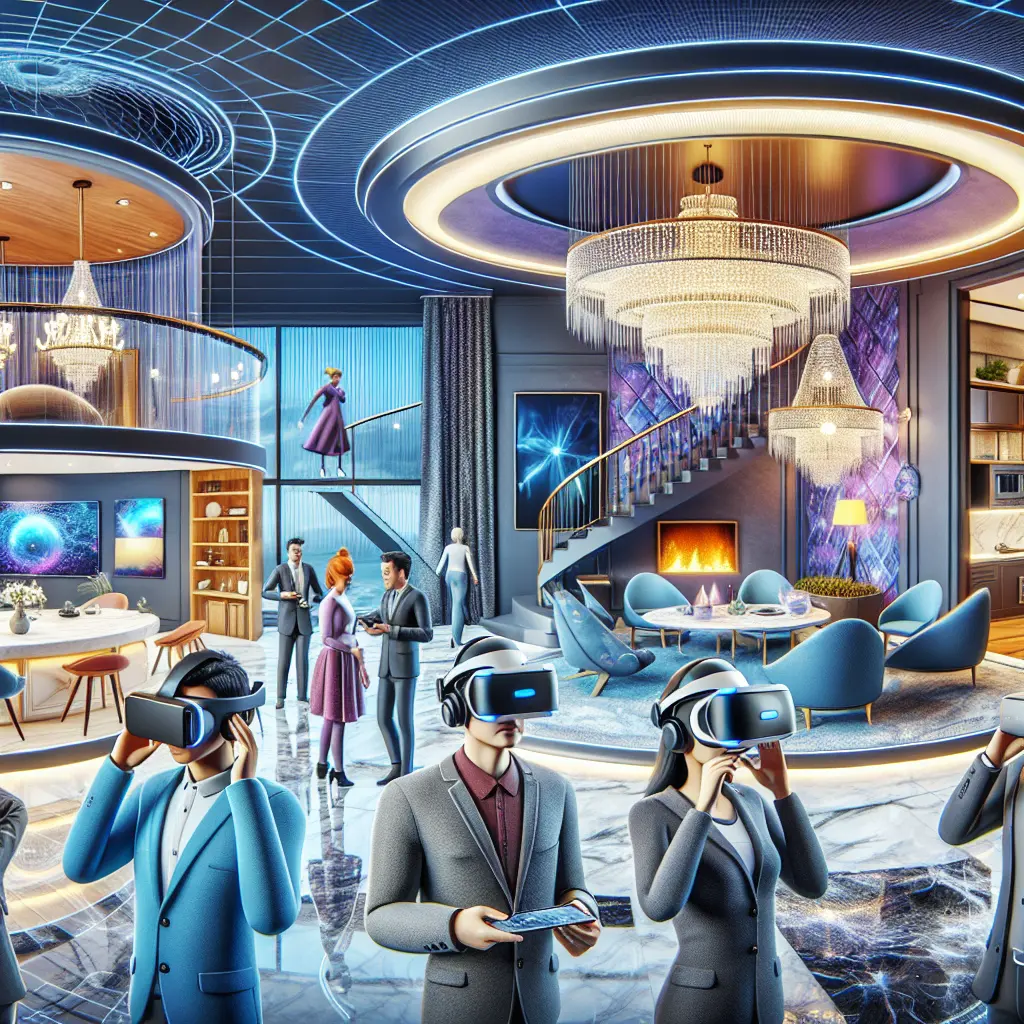
Virtual Reality: Revolutionizing Real Estate Tours
In recent years, the realm of real estate has undergone a remarkable transformation, driven by the integration of cutting-edge technologies. At the forefront of these innovations is Virtual Reality (VR), revolutionizing how potential buyers explore properties. As we move into 2024, this technological shift continues to gain momentum, offering unprecedented opportunities for both buyers and realtors.
The Evolution of VR Real Estate Tours
Virtual Reality Real Estate Tours have significantly enhanced the property-buying process by offering immersive and interactive experiences. With VR Home Tours, potential buyers can explore properties in 3D, experiencing a level of detail and engagement that traditional methods can't match. This advancement transcends geographical barriers and provides a more comprehensive understanding of a property's layout and ambiance.
A noteworthy development in this space is Meta's recent strides in VR technology, despite their decision to close Ready at Dawn Studios, as highlighted by Android Central. This closure underscores the dynamic nature of the VR industry, where companies continuously pivot to optimize their offerings and enhance user experiences.
Immersive Property Tours: Breaking Barriers
At the heart of this revolution are Immersive Property Tours, which allow buyers to virtually step inside homes from anywhere in the world. This capability is crucial in today's globalized market, where international buyers seek properties abroad. The convenience and accessibility offered by Virtual Reality House Viewing have made it an indispensable tool in Real Estate Marketing VR strategies.
Recent advancements have also introduced exciting new possibilities for how we consume media. An article on Virtual Reality’s future potential suggests that VR could change how we watch movies, indicating a broader cultural shift towards immersive digital experiences that also benefit real estate tours.
Interactive Property Tours: Engaging and Informative
Interactive Property Tours offer a dynamic platform for potential buyers to engage with properties. These tours often include interactive elements such as clickable hotspots that reveal additional information about specific features or areas of a property. This approach not only informs but also engages viewers, making the Real Estate Virtual Experience both educational and enjoyable.
The use of VR in the real estate industry aligns with broader technological trends. For instance, recent updates on Meta Quest, including AI integration and avatar enhancements, reflect ongoing improvements in VR technology that could further enhance Interactive Property Tours (Meta Quest Updates).
The Impact on Real Estate Technology
The integration of VR into real estate has ushered in a new era of Real Estate Technology. By offering 3D Virtual Tours, realtors can showcase properties with unparalleled realism. This shift represents more than just a trend; it's a fundamental Real Estate Innovation that is redefining industry norms.
Moreover, with the advent of more affordable VR hardware, such as Sony's PlayStation VR2 being offered at lower prices, the accessibility of these technologies is increasing. This democratization of technology means that more realtors and buyers can take advantage of VR's benefits.
The Future of Real Estate Tours
As we look to the Future of Real Estate Tours, it's clear that Virtual Reality Property Showings are here to stay. These tools not only streamline the buying process but also offer realtors innovative ways to present properties. The seamless blend of technology and real estate offers a glimpse into a future where traditional boundaries are increasingly blurred.
Furthermore, Meta's recent patent filing for a feature akin to Apple's EyeSight (Patently Apple), designed to reduce social isolation in VR settings, underscores the industry's commitment to enhancing user experience. Such innovations could further enrich the Real Estate Virtual Experience by making virtual tours more personal and interactive.
Conclusion: Embracing the Virtual Reality Revolution in Real Estate
Virtual Reality is undeniably transforming the real estate landscape, bringing immersive and interactive property tours to the forefront. As we venture further into 2024, the integration of VR in real estate is not merely a trend but a pivotal innovation reshaping how properties are marketed and explored. VR Home Tours break down geographical barriers, offering prospective buyers a comprehensive understanding of properties from anywhere in the world. This accessibility has made VR an essential component of real estate marketing strategies, especially for international buyers.
Interactive Property Tours elevate engagement, allowing potential buyers to delve deeper into property features through clickable elements that educate and inform. The ongoing enhancements in VR technology, such as those seen in Meta Quest updates and Sony's more affordable VR offerings, ensure these tools are becoming increasingly accessible to both realtors and buyers.
As VR technology continues to evolve, its role in real estate grows more critical, promising a future where virtual property showings are commonplace. The integration of cutting-edge innovations like Meta's patent filing for a feature similar to Apple's EyeSight further enriches these experiences, making virtual tours more personal and engaging.
In this rapidly changing digital era, embracing VR offers both challenges and opportunities. Realtors and industry professionals are urged to adapt to these technological advancements to stay competitive. For readers intrigued by these developments, consider exploring how VR could enhance your own real estate experiences or professional practices.
We invite you to share your thoughts and experiences with VR in real estate. Have you taken a virtual property tour? What was your impression? Join the conversation by leaving a comment below.
Author: Elise Hawthorne